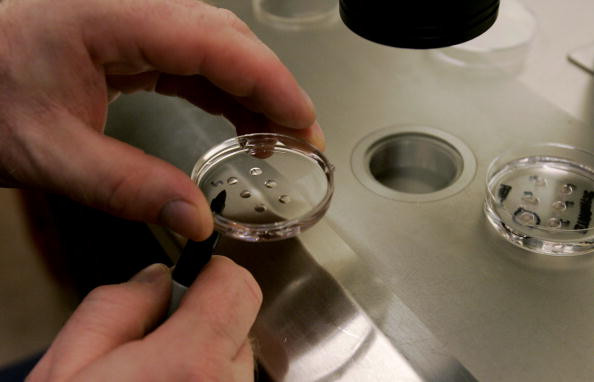Potent new fertility technique prevents side effects of in-vitro fertilisation for women
Treating the eggs with a growth factor may increase embryo yield.
Infertile couples could one day benefit from a new method designed to improve a fertility treatment known as in-vitro maturation (IVM). The innovation relies on the use of a substance naturally produced by the eggs, improving women's chances of becoming pregnant.
IVM has been available for many years, emerging in the 1960s around the same time as in-vitro fertilisation (IVF), today's treatment of choice for couples who are unable to conceive.
While IVF is currently the most effective technique available, it requires women to inject themselves with hormones every day for three to four weeks. Side-effects may include nausea and bloating, and in rare cases, women may suffer from a severe condition known as ovarian hyperstimulation syndrome.
On top of this, women must go through regular blood tests and ultrasounds as part of the IVF process. It is therefore an expensive and invasive technique, which can be uncomfortable for the patients.
In contrast, women who undergo IVM do not need to take as much hormones. The eggs are removed from their ovaries when they are still immature, and are then matured in the laboratory before being fertilised.
"IVM has many advantages over IVF. Women are required to inject themselves with about 90% less hormones than if they were going through IVF. It is a simpler, cheaper procedure, with less medical problems. However, it is much less effective, chances of getting pregnant are lower", lead scientists Robert Gilchrist, from the New south Wales University, told IBTimes UK.
"For this reason, very few clinics offer IVM. After years of research on egg biology, we have come up with a new method to make this process more effective – our philosophy is that instead of treating women, we really should be treating the eggs with hormones."
Cumulin's action
Th study, published in The Journal of Biological Chemistry, is a collaboration between scientists from the University of New South Wales, the University of Adelaide, UZ Brussel at Vrije Universiteit Brussel and Cook Medical.
Researchers in Gilchrist's lab recently discovered a growth factor called cumulin – a naturally occurring hormone produced by the egg and capable of locally stimulating its cellular growth. After artificially producing cumulin, the researchers added it, with small signalling molecules, to egg cells.

Initial experiments using the technique in pigs showed an improvement in egg quality and a doubling of the embryo yield compared with the existing IVM method. In a pre-clinical trial on human eggs, the technique resulted in improved egg quality and a 50% increase in embryo – results that are comparable to that of a traditional IVF procedure.
"When women take hormones as part of the IVF process, we think this triggers cumulin's action, helping the eggs to mature. So essentially what we have done here is find a way to reproduce cumulin's actions on the eggs without women taking hormones. We have improved egg quality and embryo yield with next to no drugs, using potent growth factors produced by the egg", Gilchrist explained.
More research ahead
These findings are just a first step for the researchers. The procedure has not yet been accepted in clinical practice, which means it is not currently available as a fertility treatment option. More tests will have to be carried out on human eggs, to make sure that it is safe, in particular for the children that could be born thanks to it.
But if it proves safe and effective and ends up being accepted, it could be a game-changer for infertile couples. Women may eventually even be able to avoid painful and uncomfortable injections altogether.
"Women do still have to go through three days of hormone injection with IVM. If our procedure gets approved, this could still continue for a while, but eventually, we hope the patients will be able to stop completely and that it will be enough to treat the egg with the growth factor. Our aim is not to replace IVF, but to offer another effective alternative to couples", Gilchrist concluded.
© Copyright IBTimes 2025. All rights reserved.






















